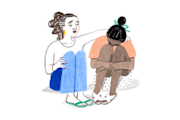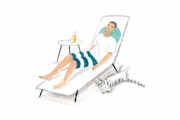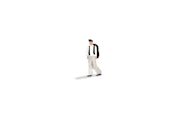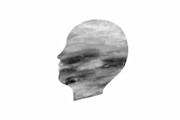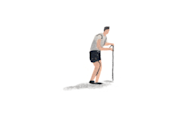Am I tired or depressed? Am I depressed or tired?
Is it normal to lay on the couch all day?
Am I exhausted or depressed?
What's fuzzy brain? Is it different from fatigue?
Am I sad or tired? Am I tired or sad?
How do I know if I'm just tired?
Some days we start off exhausted from the moment the alarm goes off in the morning.
How do I know if I'm just tired?
We can’t seem to open our eyes all the way, no matter how much coffee we drink.
Around mid-day, we may begin to fantasize about our warm, soft bed.
By late afternoon, we’re reaching around for toothpicks to prop our eyelids open.
And, as soon as it gets dark, we’re back in bed and soundly asleep before 8 p.m.
Can tiredness be mistaken for depression?
Fatigue is a common symptom of depression.
One study shows 90% of those diagnosed with depression reported feeling excessively tired.
So, when is extreme sleepyness a symptom of something serious like depression or major depressive disorder (MDD)?
The two seem intrinsically linked. Are they?

Is fatigue a side effect of depression?
Extreme tiredness or fatigue is one of the leading symptoms of depression and grief.
So, in other words: yes, it can be.
Exhaustion can also mean you are not getting enough sleep, and you may need to follow a better sleep hygiene routine or try CBT-I to improve your sleep.
There is research the suggests depression and fatigue are comorbid.
Comorbid means that each exacerbates the other.
Does depression make you suddenly tired?
When we're depressed, we may feel exhausted and fatigued.
Extreme tiredness, fatigue, and mental exhaustion can also be signs you may be burning out.
For many people, sleeping all the time can make us feel depressed which can make us feel like sleeping all the time, which can make us feel deeper levels of depression.
You see where I’m going with this.
It's a vicious cycle.
And, thus, it's difficult to tease out precisely where one begins and the other ends.
Do you have other depression symptoms?
While wanting to stay in bed could be a symptom of depression, it’s especially worrisome if—in addition to that exhaustion—you find yourself losing interest in that which previously gave you pleasure.
Likewise, if you notice that you’re isolating yourself, or if you can’t muster the energy to face your friends for your weekly hang, it could be a warning sign.
Insomnia also tends to go hand-in-hand with depression.
No matter what, if your fatigue is disrupting your daily life, talk to your doctor or mental health professional.
If you can barely keep your head off your desk all day because you’re so tired, but then you find yourself staring at the ceiling once you get to bed, there could be something chemical going on in your brain.
Take ouronline depression assessmentto help you figure out whether you're experiencing numerous other symptoms of depression.

The Monarch Directoryby SimplePractice makes it easy for you to find a therapist who specializes in helping clients with depression. And you can book an appointment online.
You can even choose to meet with your therapist for a telehealth video session, without leaving the comfort of your couch or bed.
Talk to your doctor or therapist
No matter what, if your fatigue is disrupting your daily life, talk to your doctor or mental health professional.
Explain exactly how and when your exhaustion presents itself, and be sure to mention any other changes that have happened recently.
Maybe your doctor will help you uncover a thyroid issue that has you sleepwalking through your days.
Or maybe they’ll recommend a therapist near you specializes in treating clients with depression.
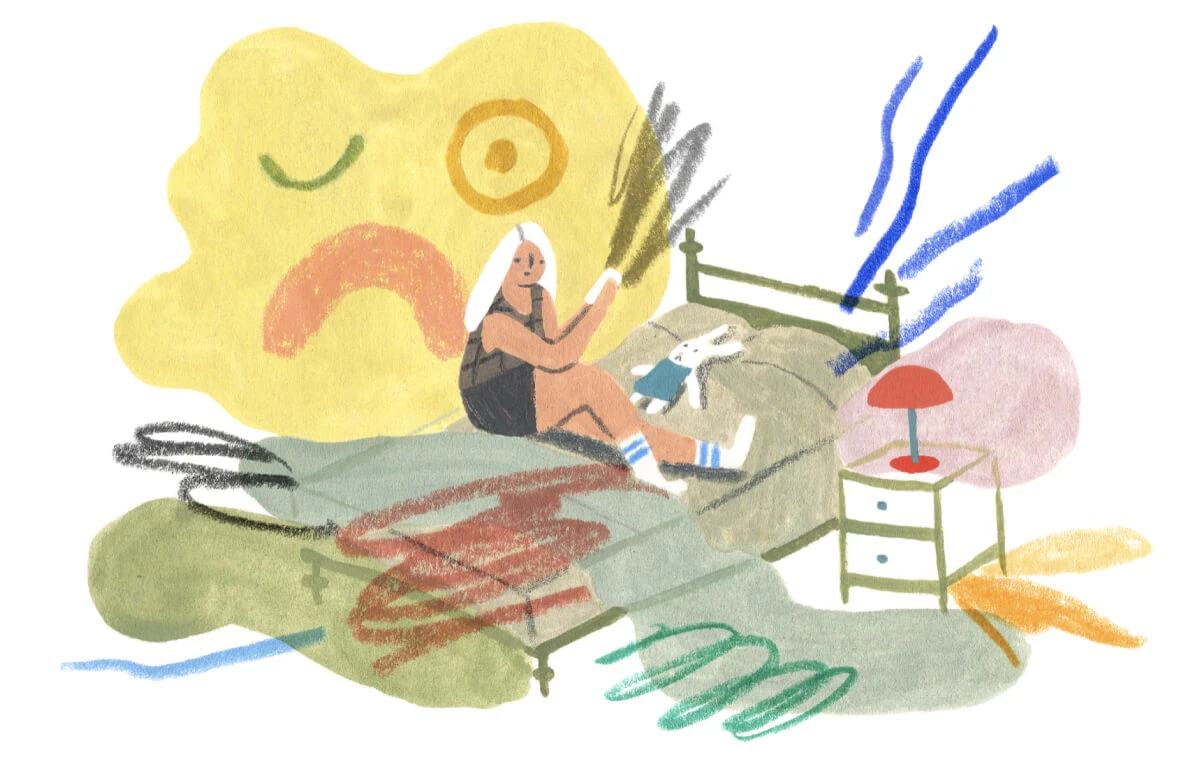
It’s OK not to be OK
This may seem like it goes without saying, but giving yourself a break will go a long way towards helping you overcome depression, constant fatigue, or both.
If, on top of your sleepiness, you’re anxious about the possibility of being clinically depressed, you’re only going to aggravate these symptoms further.
Seeking help for tangible maladies (being exhausted all the time) and intangible maladies (“I just don’t feel like it”) is hardly a sign of weakness.
Taking charge of, and addressing, your health, both physical and behavioral, is an important part of being a human.
Be sure to be kind to yourself.
Concerned you might be depressed?
Take our online depression assessment to determine whether you're experiencing the symptoms of full-blown depression or major depressive disorder (MDD).
It's free, quick, confidential, and clinically validated.
How to find an affordable therapist
If you want to find a therapist but have concerns about cost, be sure to explore all the choices available to you. Here are tips on how to pay for therapy.
The Monarch Directory can help you find licensed therapists near you, and you can choose to browse therapists and who accept your insurance.

Here are some tips on finding mental health professionals covered by your insurance.
Each individual therapy provider’s page on Monarch lists their hourly fees directly underneath their areas of specialty.
Many therapists on Monarch also allow you to book free 15-minute initial consultation appointments.
READ NEXT: What Are the Types of Depression and the Levels?
Need to find a therapist near you? Check out the Monarch Directory by SimplePractice to find licensed mental health therapists with availability and online booking.
Corfield, E. C., Martin, N. G., & Nyholt, D. R. (2016). Co-occurrence and symptomatology of fatigue and depression. Comprehensive Psychiatry, 71, 1–10. https://doi.org/10.1016/j.comppsych.2016.08.004
Targum, S. D., & Fava, M. (2011). Fatigue as a residual symptom of depression. Innovations in Clinical Neuroscience, 8(10), 40–43. Retrieved from https://www.ncbi.nlm.nih.gov/pmc/articles/PMC3225130/

